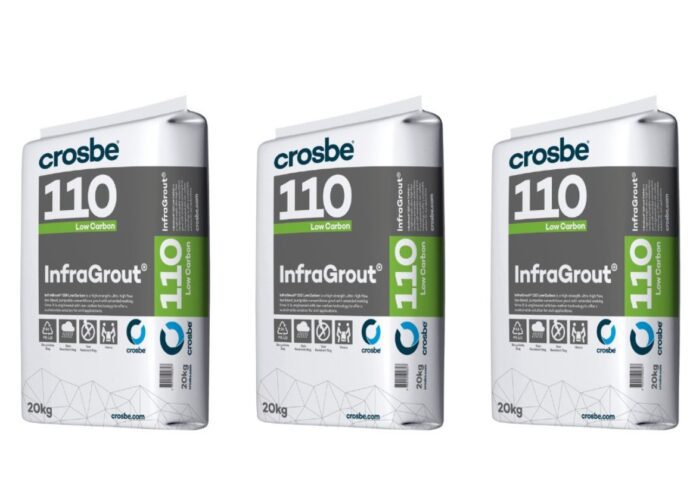
Australian manufacturer Crosbe has rolled out its low-carbon cementitious grouts, InfraGrout 110 Low Carbon and InfraGrout 190 Low Carbon.
This development follows extensive research and development at the company’s western Sydney headquarters, the firm said in a news release.
Albert Haddad, founder and managing director of Crosbe, emphasised that these innovative products are not only the result of rigorous R&D but also a direct response to customer demands, underscoring the company’s dedication to meeting market needs.
“It is well known that the cement industry generates approximately eight percent of all global CO2 emissions, with four billion tonnes of cement produced each year. For every tonne of cement produced, one tonne of CO2 is released into the atmosphere.”
He added, “To put that in context, if the cement industry was a country, it would be the third-largest emitter of CO2 in the world.”
Albert Haddad explained that Crosbe’s strategy for significantly cutting carbon emissions involves minimising the use of ordinary Portland cement in its products by incorporating supplementary cementitious materials (SCMs) and alternative cement.
He noted that their new low-carbon technology is rooted in these practices. Although SCMs have been used before, he acknowledged that there are usually compromises in the performance of the final products when a large portion of the cement content is replaced with SCMs.
“We have developed the technology to reduce the cement content in our products by up to 70 per cent and the embodied carbon by up to 48 per cent. By applying our low-carbon technology across all product lines, Crosbe can potentially prevent some 7,000 tonnes of CO2 from being emitted into the atmosphere each year based on our current volumes,” he added.
InfraGrout 110 Low Carbon is a high-strength, ultra-high-flow, zero-bleed, pumpable cementitious grout with extended working time, engineered for civil applications such as grouting PT bridge ducts, ground anchors, and soil nails.
This product is approved by Transport for NSW and other Australian road authorities and is expected to receive Environmental Product Declaration (EPD) accreditation, involving a full lifecycle assessment and data publication.
InfraGrout 190 Low Carbon is a pumpable, thixotropic cementitious grout designed to encapsulate roof bolts and cable anchors requiring top-down grouting methods.
Formulated with advanced additives and SCMs, it features low shrinkage, low chloride, high yield, and high compressive strength.
“As an Australian manufacturer that undertakes all R&D at our premises in Seven Hills, we can develop products that suit the specific needs of the Australian market. We’ve started talking to customers about the new low-carbon products and had significant interest in using them on major infrastructure projects,” said Haddad.
The InfraGrout products are easy to mix on-site with only the addition of water and are packaged in rain and tear-resistant recyclable polyethylene bags made from 30 per cent recycled material.
The new low-carbon variants will be available alongside existing products but are expected to gradually replace them.
Crosbe said it plans to incorporate low-carbon technology into other product lines over time.



















